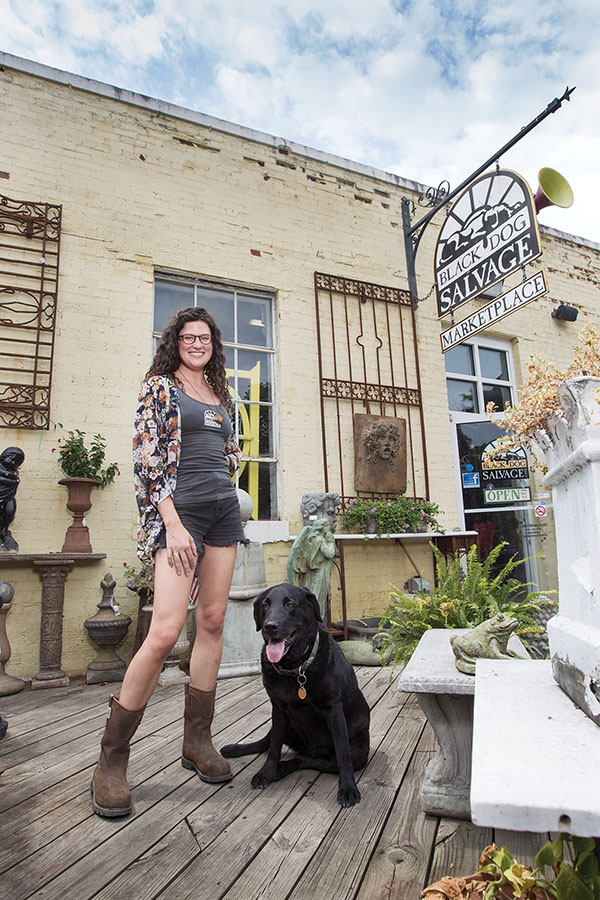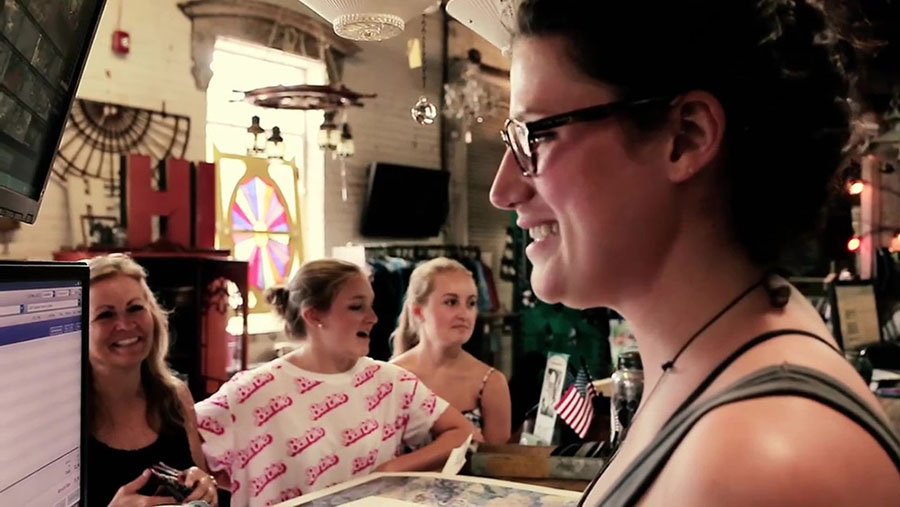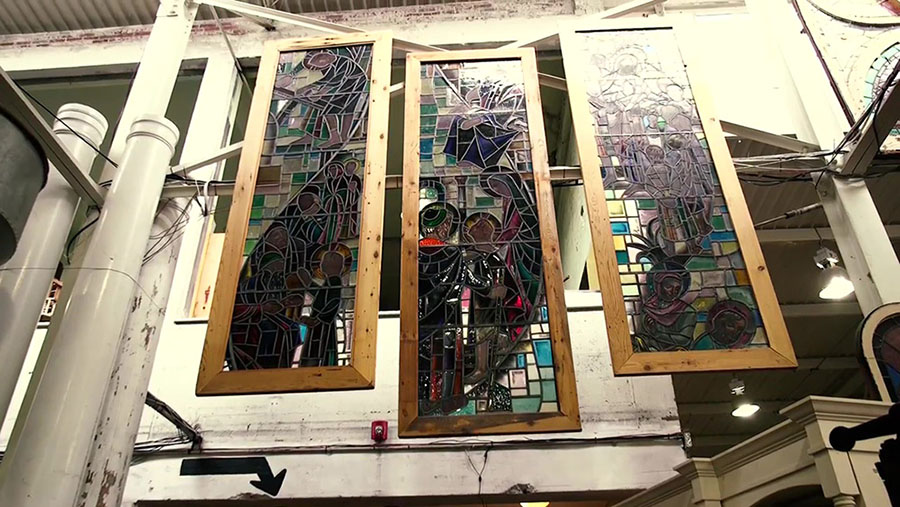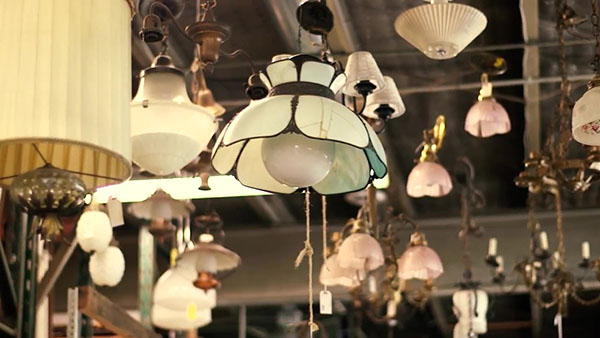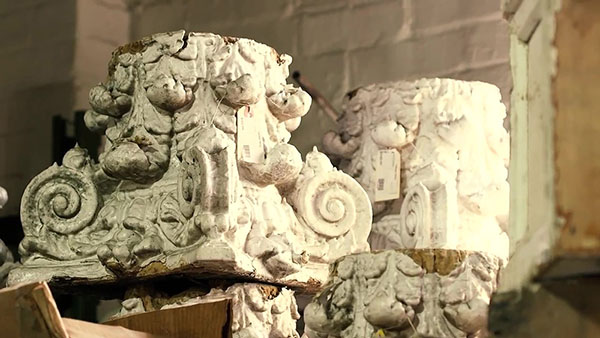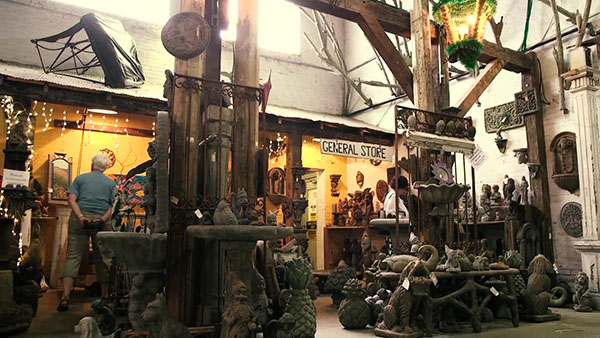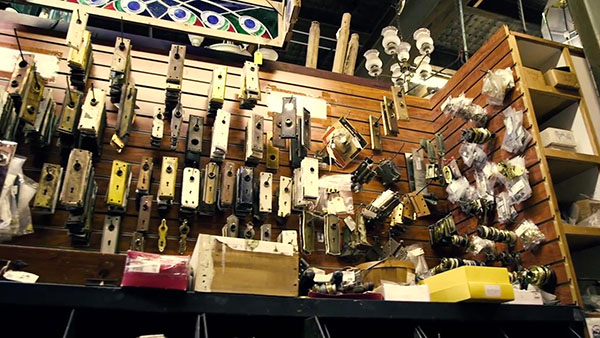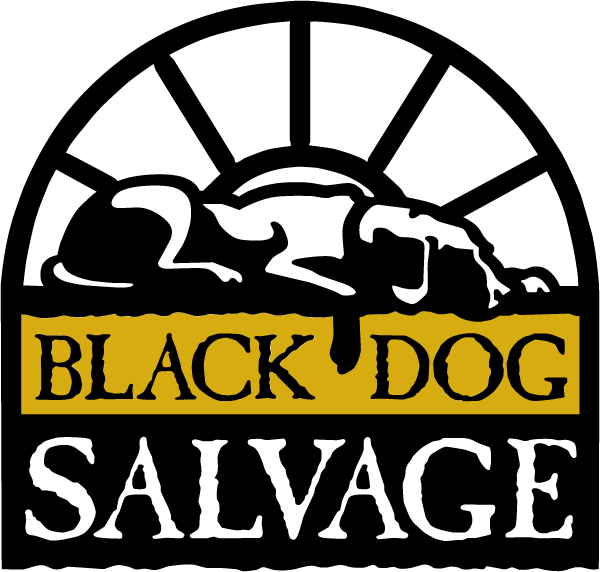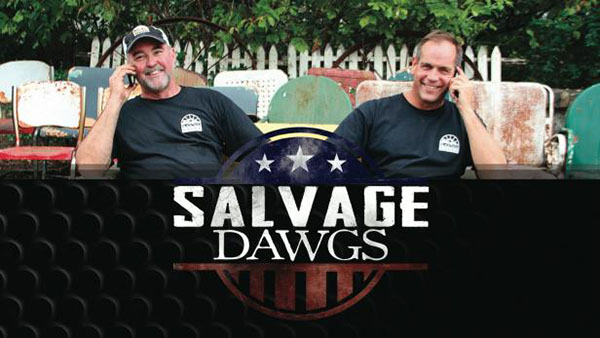If you’re one of those people who collects ideas on Pinterest about repurposing a wooden crate into a porch swing, tiling your bathroom floor with copper pennies or using recycled bottles in wedding centerpieces, you’d love the show “Salvage Dawgs” on the DIY network. It chronicles the adventures of a fun and dynamic group of people who recover and reclaim items from buildings fated for demolition, bring them back to their warehouse, and re-sell them or repurpose them into other items for sale.
If you’re the type who’d rather leave the DIY-ing to others, the retail shop at Black Dawg Salvage in Roanoke, Virginia, has plenty to discover. The place is chock full of items to outfit the homes of the shabby chic decorator, the hipster, the classic antique collector, the reformed (or unapologetic) hippie, and everyone in between. People come from all over the continent to visit the store, take selfies with the stars of Salvage Dawgs, and buy show swag and treasures large and small. On a hot, muggy, August afternoon, the place is positively bustling.
Calmly walking through the organized chaos, smiling at customers and joking with co-workers, is Grayson Goldsmith ’11, the only female star of the reality show. Tall and stunning, wearing steel-toed boots with her cutoffs and logoed tank top, she stands out among the crowd. She moves through the huge retail and warehouse space, answering phone calls, tracking down miscellaneous items of inventory, – “Do y’all still have that floor lamp Mike built from recovered barn wood and iron I saw on the windmill episode?” – and making sure our camera crew has access to electrical outlets and an interview location that isn’t too noisy and has just the right light. She knows exactly what we need and is friendly and efficient.
Appalachian State University alumna Grayson Goldsmith ’11 describes how her work at Black Dog Salvage in Roanoke, Virginia, is a natural extension of her Sustainable Development degree.
As we sit down to chat, her warmth, mixed with a bit of endearing awkwardness, is disarming. She is open, genuine and friendly, and immediately apologizes for being camera-shy. She tells us, being on Salvage Dawgs, “at the beginning, was a bit nerve-wracking. I was so nervous about being this girl in the field. You know, I didn’t want to seem helpless or weak.”
Not much to worry about there. On the show, she wields tools with a practiced air, demolishing structures, recovering salvageable items and occasionally, coming away bleeding. But she also brings empathy to every project, and an aspect of the job that brings her satisfaction is gaining a true understanding of the social and personal history of the items her crew recovers.
“There’s always a story,” she said. And it’s evident she finds it moving and meaningful to talk with the owners of the salvaged items. “Knowing that this stuff is being respected, and we really appreciate it… they are almost tearing up when they know it’s going to live on in another way, another form, just get reused. They are worldly things,” she added, “but they have sentimental value.”
Black Dog owner and Salvage Dawgs co-star Mike Whiteside shows obvious appreciation for this quality Grayson brings to the job. “You have to be sensitive – you’re dealing with people’s lives that are history. You know, we’re taking something down that’s connected to the community and/or individuals, and you have to be respectful of that. And Grayson really helps us. I mean, Robert and I have done it for years, and Grayson does that too...”
“She just does it better,” interrupted his business partner and co-star Robert Kulp with a smile.
While taking care of people’s legacies has meaning for Grayson, this Sustainable Development alumna finds true satisfaction in working in an industry that embodies sustainability.
“The main principle… of sustainable development is the emphasis on social equity, environment, and economics. And what I do here at Black Dog is, we are working in a business, so obviously our aim is to make a profit. But we also are salvaging and repurposing architecture, and keeping that out of our waste streams. You know, things that would have ended up being in the burn pile or landfill, essentially. So, it feels right to be working somewhere where I’m kind of contributing to that social change.”
Grayson’s degree stood out to her employers as an asset. Kulp and Whiteside appreciate her ability to understand how their business is making a lasting impact on the environment, the local economy in Roanoke and the lives of their employees, as well as the former owners of the salvage.
“In one of the conversations I had with her about her degree,” said Kulp, “she said it was really about, not only, ‘hey, let’s just recycle.’ It’s much deeper than that, and it’s based on the fact that the only way that kind of effort can be sustained is for people to be sustained by it.”
“Yeah, I feel good about what I’m doing, and I believe in the work that we do,” Grayson added.
Some people search for that their entire lives. Grayson found it right out of college.
Now there’s an Appalachian definition of success.
About Sustainability and Energy Management at App State
Appalachian State University’s leadership in sustainability is known nationally. The university’s holistic, three-branched approach considers sustainability economically, environmentally and equitably in relationship to the planet’s co-inhabitants. The university is an active steward of the state’s interconnected financial, cultural and natural resources and challenges students and others think critically and creatively about sustainability and what it means from the smallest individual action to the most broad-based applications. The university offers both undergraduate and graduate academic degree programs that focus on sustainability. In addition, 100 percent of Appalachian’s academic departments offer at least one sustainability course or course that includes sustainability, and all students graduate from programs that have adopted at least one sustainability learning outcome. Learn more at https://appstate.edu/sustainability.
About the Goodnight Family Department of Sustainable Development
One of seven departments housed in the College of Fine and Applied Arts, the Goodnight Family Department of Sustainable Development at Appalachian State University prepares students to thoughtfully analyze human development while focusing on the applied practice of pursuing transformative, community-driven development and social change. It offers a Bachelor of Science degree in sustainable development with concentrations in agroecology and sustainable agriculture; community, regional and global development; and environmental studies; as well as a Bachelor of Arts and minor in sustainable development. Learn more at https://sd.appstate.edu.
About Appalachian State University
As a premier public institution, Appalachian State University prepares students to lead purposeful lives. App State is one of 17 campuses in the University of North Carolina System, with a national reputation for innovative teaching and opening access to a high-quality, cost-effective education. The university enrolls more than 21,000 students, has a low student-to-faculty ratio and offers more than 150 undergraduate and 80 graduate majors at its Boone and Hickory campuses and through App State Online. Learn more at https://www.appstate.edu.
What do you think?
Share your feedback on this story.

